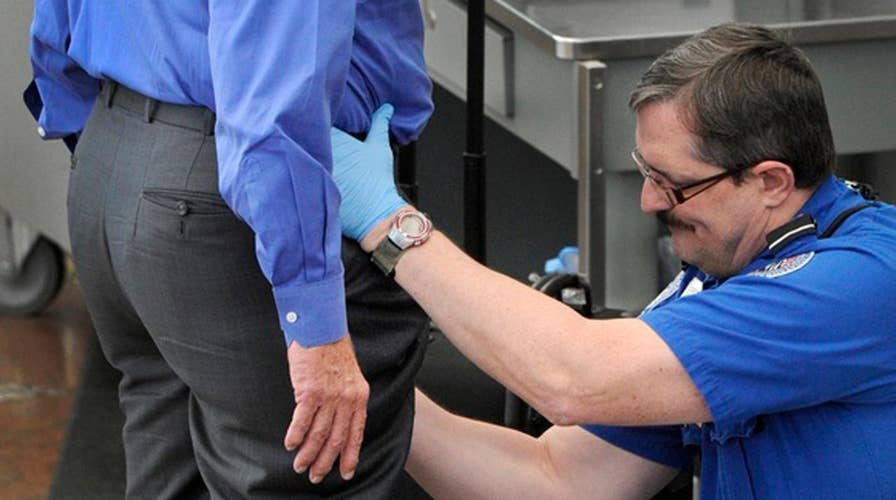TSA screenings are about to get more invasive
Airport pat-downs to be more 'rigorous, intimate'
The Transportation Security Administration (TSA) has just announced that it will be conducting a potentially more invasive physical pat-down procedure to customers who refuse to be scanned electronically.
On Monday, TSA says it decided to inform local police of the new pat-down in case a passenger calls to report “abnormal” federal frisking, Bloomberg reports, but the agency has declined to say exactly where-and how-employees will be touching air travelers.
Previously, if a flier was selected, one of five separate types of pat-downs were used but the new search procedure said is to replace all five of the other pat-downs.
According to the agency’s website, “TSA officers use the back of the hands for pat-downs over sensitive areas of the body. In limited cases, additional screening involving a sensitive area pat-down with the front of the hand may be needed to determine that a threat does not exist.”
Now, security screeners will use the front of their hands on passengers in a private screening area if one of the prior screening methods indicates the presence of explosives. TSA requires all pat-downs to be conducted an officer of the same sex.
Two million people are screened by TSA daily throughout airports nationwide.. The searches normally occur when an imaging scanner detects one or more unknown objects on a person or if a traveler declines to walk through the scanner and instead for the physical screening. Passengers who decline the screening technology are automatically subject to enhanced physical searches.
FOLLOW US ON FACEBOOK FOR MORE FOX LIFESTYLE NEWS
The agency says the new screening procedure is not expected to increase overall airport security delays though TSA pre-check passengers may also receive an enhanced pat-down.
The change is partly due to the agency’s study of a 2015 report criticizing different aspects of current agency screening procedures. That particular audit, conducted by the Department of Homeland Security’s Inspector General, reported that airport officers failed to detect handguns and other weapons.
Airline pilots, flight attendants and crew members are also subject to receiving the new pat-down but overall number of random searches for airline crews will remain at a very small percentage. Airport employees may also be subject to additional, random screenings.

